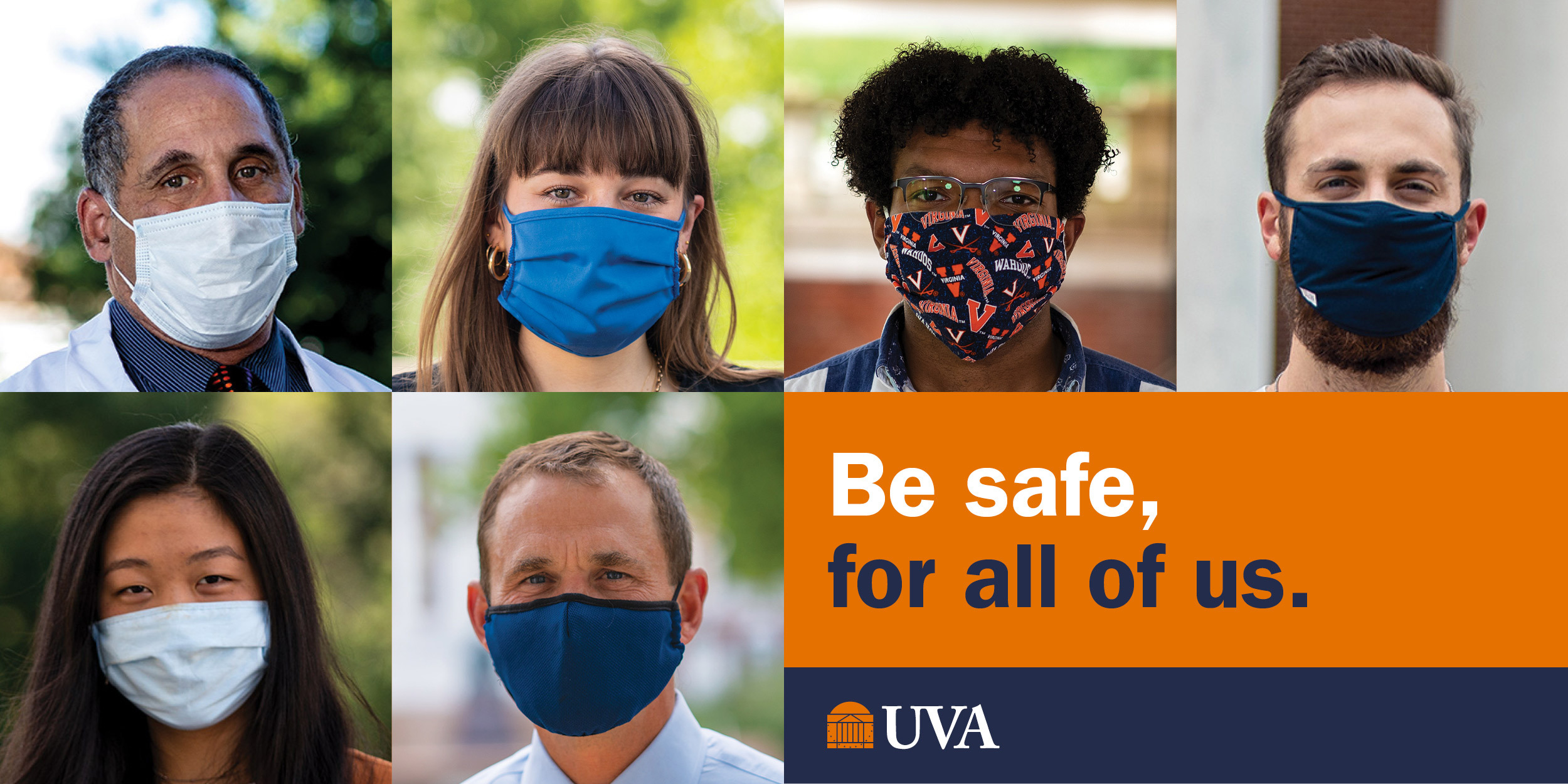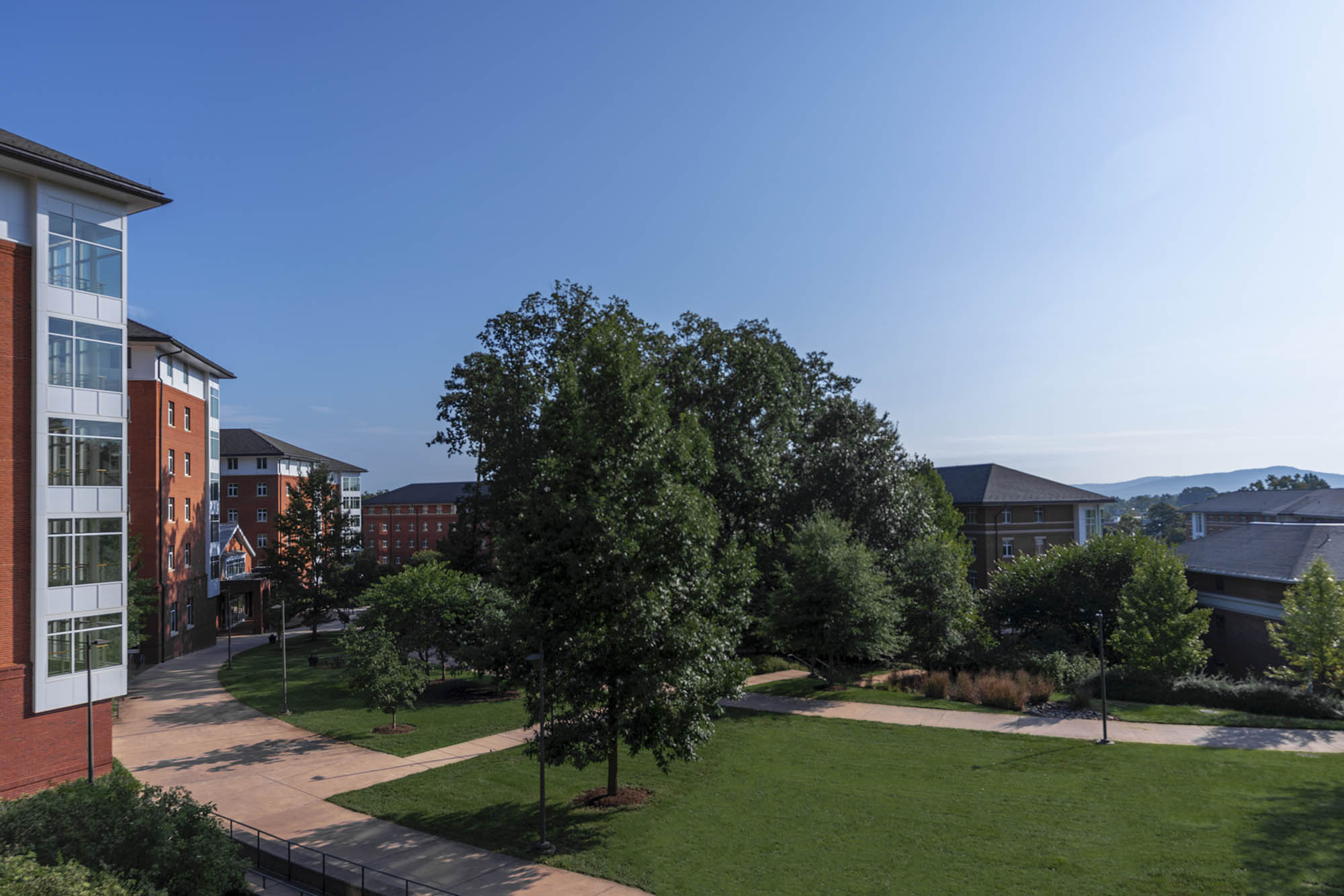Adding to its population testing efforts, the University of Virginia said Tuesday that it will begin testing all students living in all University residence halls for COVID-19 on a regular basis, at least once every nine days.
Along with its strategy for testing in UVA housing, the University will increase asymptomatic testing for students living off-Grounds. Initially, it will focus on using self-administered test kits from the vendor Let’s Get Checked. Those tests will be supplemented in the coming weeks with in-house saliva screenings.
University leaders also said Tuesday that – based in part on encouraging recent virus indicators – the number of people allowed to gather in groups will increase from a maximum of five to a maximum of 10. Other restrictions, including those related to mask-wearing and limiting visitors and unnecessary travel, will remain in place. UVA leadership stressed the need for vigilance in maintaining these and other public health measures, such as physical distancing and hand washing.
“Throughout this unique semester, UVA’s goal has been to find the right balance between protecting public health and creating safe opportunities to learn together and from each other in a residential academic environment,” Dean of Students Allen Groves said in a message to the student body. “As the progression of the virus has shifted (either positively or negatively), so has our approach – and that will continue to be the case into the future.”

The adjustments in its approach to testing among on-Grounds residents will help UVA identify potential outbreaks at their earliest stage, which is critical to control the spread of the virus, according to Tuesday’s message, signed by UVA Provost Liz Magill, Chief Operating Officer J.J. Davis and UVA COVID-19 Response Chief Medical Adviser Dr. Mitch Rosner, a professor and Department of Medicine chair.
“We are doing this out of an abundance of caution and to contain the spread of COVID-19 in communal living spaces,” they wrote to students. “People can be infected with COVID before they feel ill or begin to show symptoms. Transmission can occur unnoticed and can spread when people live together. Regular testing will help identify asymptomatic students in residence halls before the virus has a chance to spread widely.”
Occupants of each residence hall will be tested as a group, with the exception of a few large residence halls that will be tested over several days. Tests will be based on either a nasal swab or a saliva sample, and students will receive an email with information about their testing appointment, including the time, day, location and testing method.
The testing is mandatory, though students can reschedule their tests for unavoidable conflict, such as a class, or if they are currently in isolation or quarantine for exposure to COVID-19. Students who have previously tested positive for the virus should not be tested again for 90 days from that positive test, and can cancel their testing appointment.
Results will typically be available in 24 to 48 hours. Students who test positive will need to isolate and can move to UVA’s isolation housing, where the University provides meals and other support. The Virginia Department of Health will conduct contact tracing for any positive cases.
UVA has been using several testing methods to detect the virus among students living both on and off Grounds, including asymptomatic prevalence testing for students living off Grounds, testing for symptomatic students, wastewater testing in residence halls and tests based on saliva samples.
Throughout the fall semester, decisions about which dorms to test were reached in part by examining the results of wastewater analysis in concert with the prevalence of positive cases identified through random tests or by students who were tested because they were feeling ill. The addition of the saliva screening method – and its projected larger role as UVA ramps up the capacity – allows the University to shift to the more scheduled approach to testing residence hall occupants at least every nine days.
Media Contact
Article Information
October 13, 2020
/content/uva-test-dorm-residents-more-regularly-relaxes-restriction-gatherings

